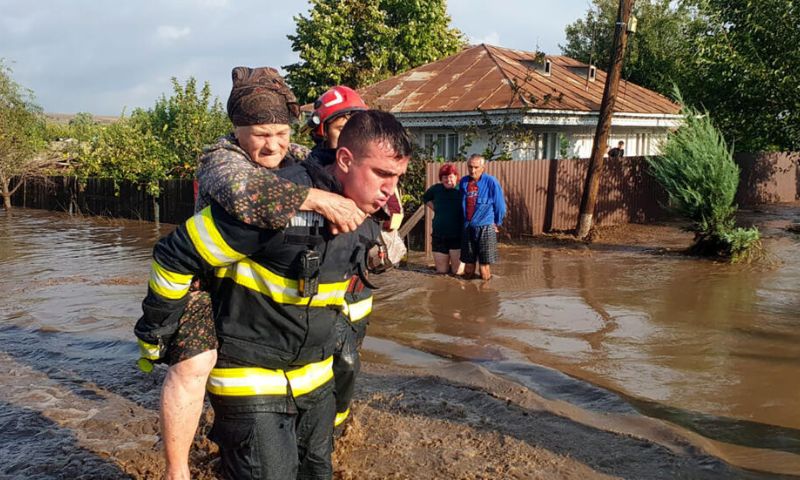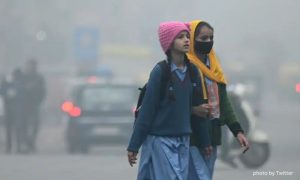BUCHAREST: Storm Boris has wreaked havoc across central and eastern Europe, bringing torrential rains and causing severe flooding and widespread disruption, rescue services said on Saturday.
The storm, which began impacting the region on Thursday, has resulted in the deaths of four people in Romania and has affected large parts of Austria, the Czech Republic, Hungary, Romania, and Slovakia.
Romanian authorities have reported that four fatalities occurred in the southeast region of Galati, which has been hit hardest by the storm. In Galati, approximately 5,000 homes have been damaged, and rescue services have been working tirelessly to assist those affected.
Over 700 homes in the village of Slobozia Conachi have been flooded, leading to a declaration of a state of emergency in the area.
Romanian President Klaus Iohannis highlighted the broader implications of the storm, linking it to the growing impacts of climate change. “We are again facing the effects of climate change, which are increasingly present on the European continent, with dramatic consequences,” Iohannis stated.
In the Czech Republic, the storm has caused nearly 2,900 incidents, including fallen trees and flooding. About 100,000 firefighters have been mobilized to address the damage, and nearly 50,000 homes are without electricity.
The storm has also led to the evacuation of a hospital in Brno. Czech Environment Minister Petr Hladik warned that the situation is exacerbated by saturated ground, which is causing water to remain on the surface.
Slovakia has declared a state of emergency in its capital, Bratislava, as the storm continues to affect the region. In Poland, authorities have closed the Golkowice border crossing with the Czech Republic due to river flooding. Several roads and train services have been disrupted, particularly on the line connecting Prudnik to Nysa.
In Austria, the storm has brought winds of up to 146 kilometers per hour (91 miles per hour) in the south. Firefighters in Vienna have responded to around 150 incidents related to storm debris and water removal from flooded cellars.
In the Styrie region, 4,000 homes are without power, and Chancellor Karl Nehammer warned that the peak of the storm’s impact is still forthcoming.
The western mountainous regions of Austria have also experienced significant snowfall, with up to a meter (three feet) of snow recorded in the Tyrol area. This unexpected snowfall, following temperatures of up to 30 degrees Celsius (86 degrees Fahrenheit) last week, has led to halted traffic and ongoing rescue operations for a man reported missing after an avalanche.
























